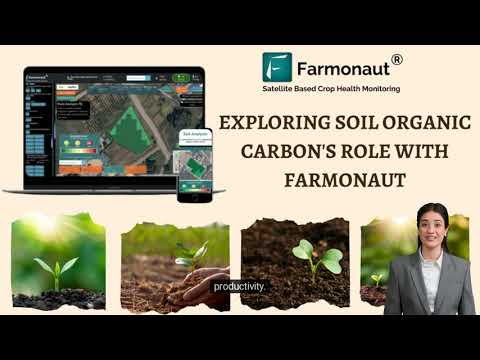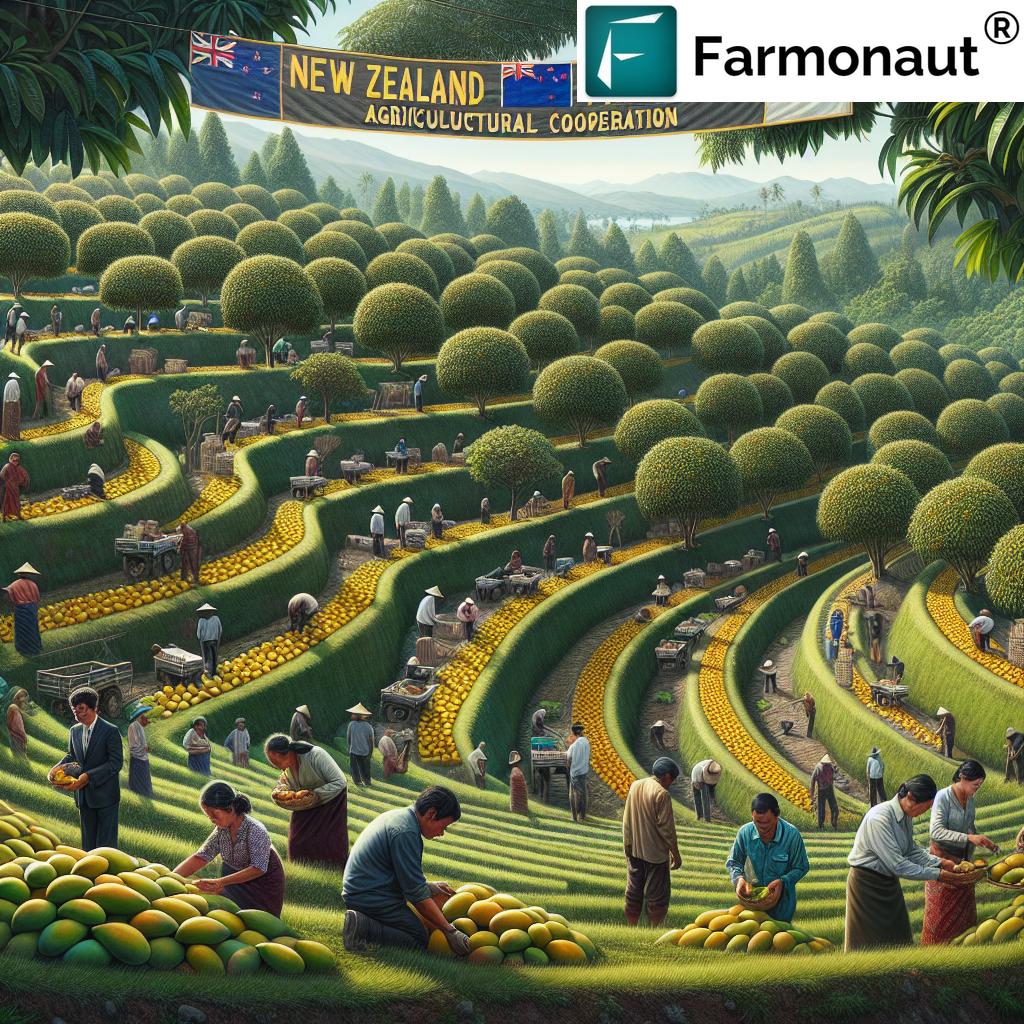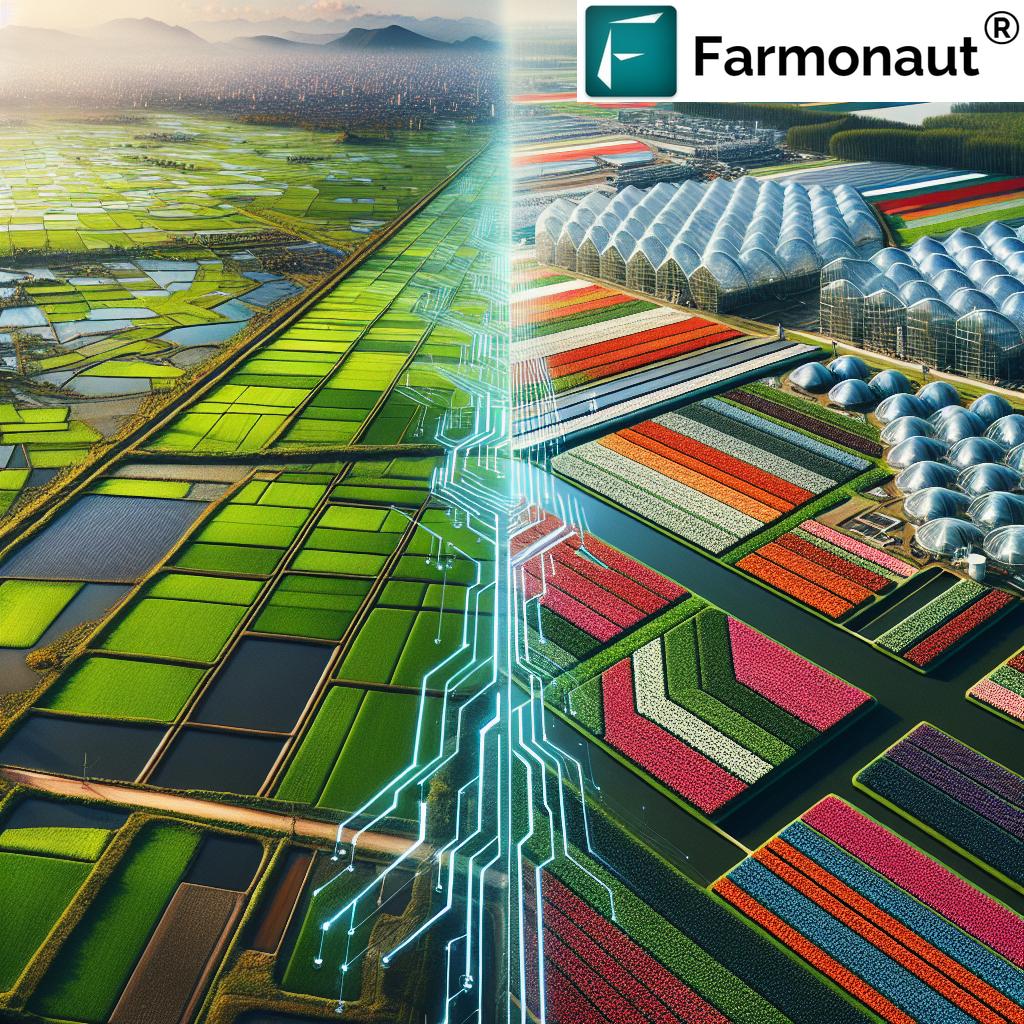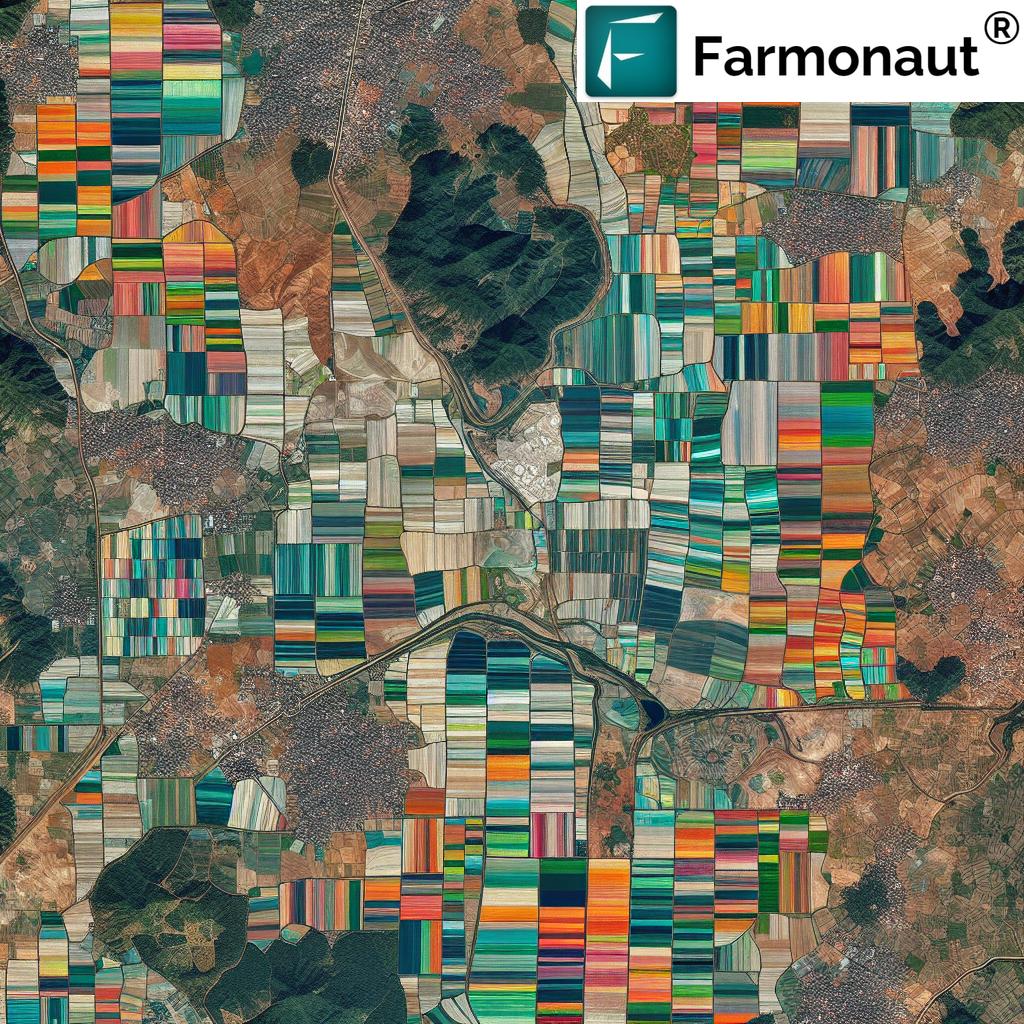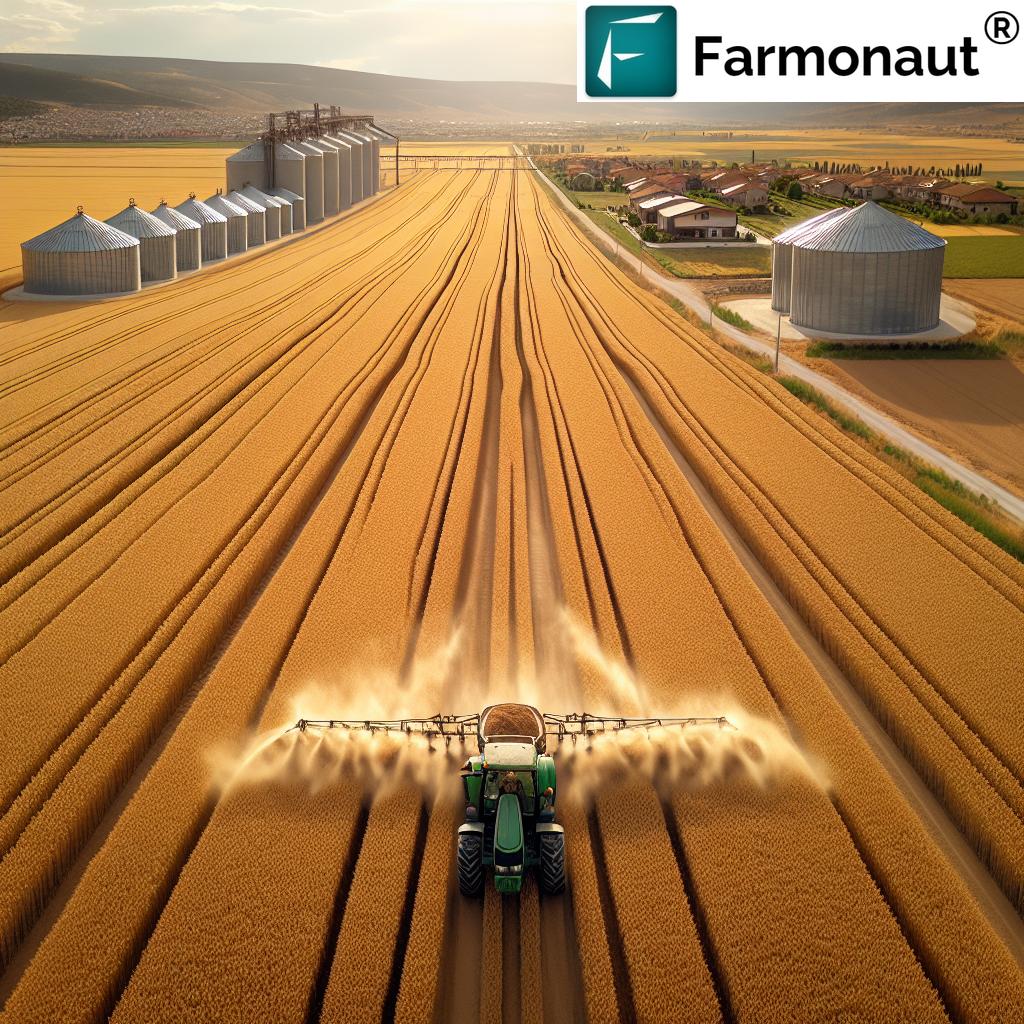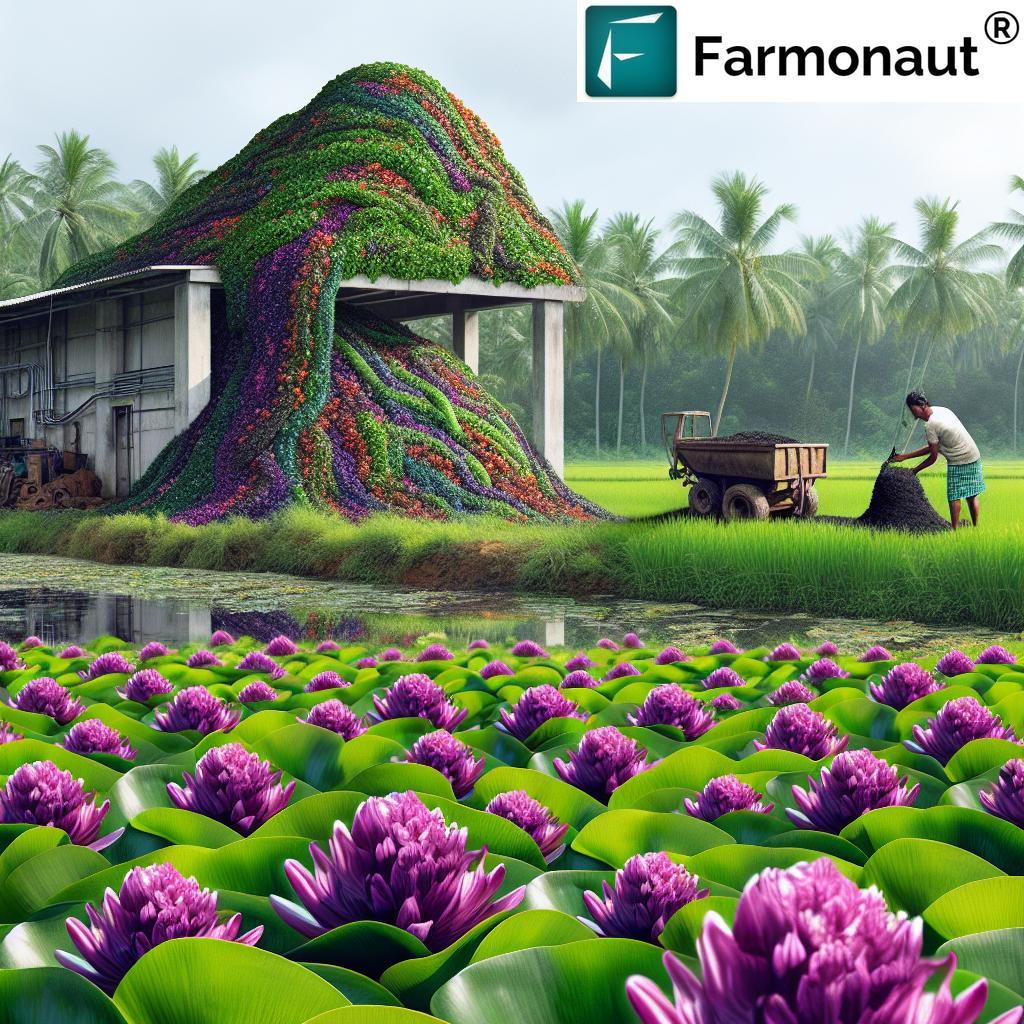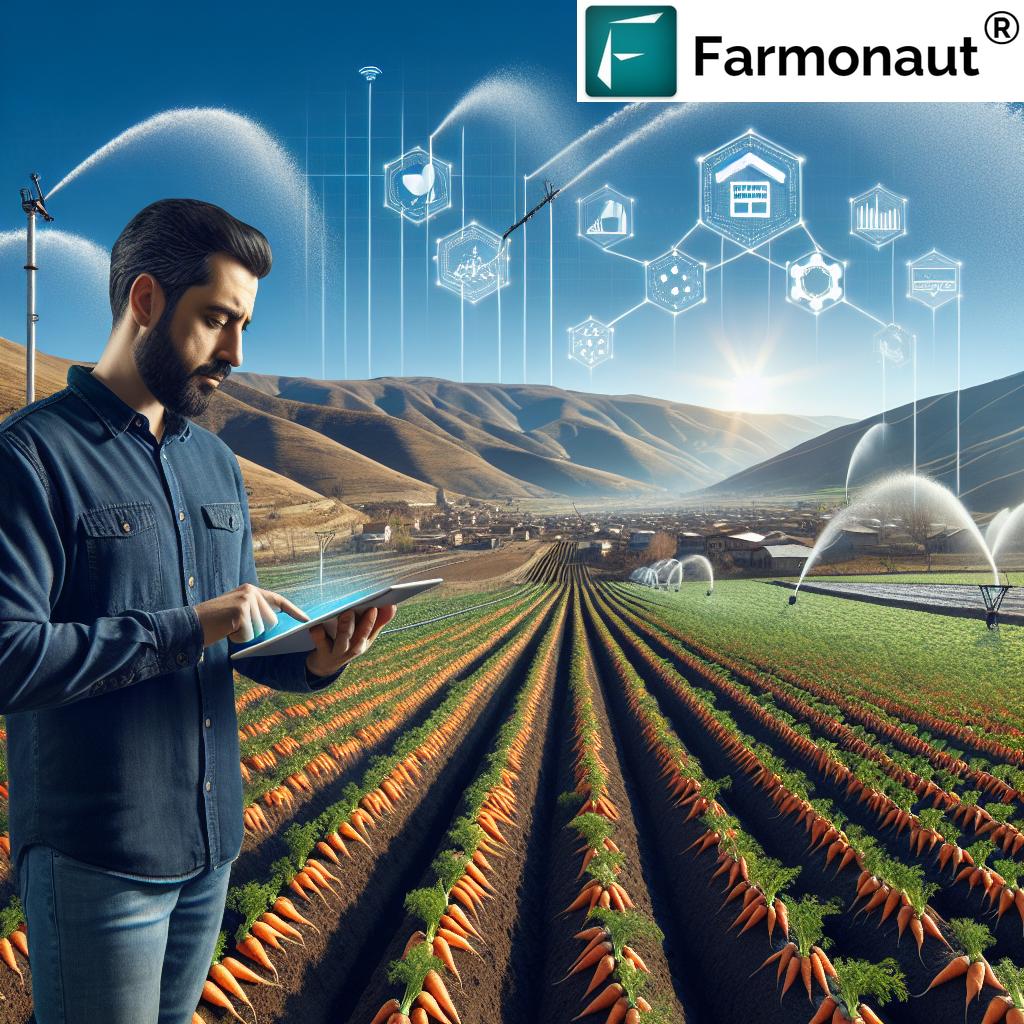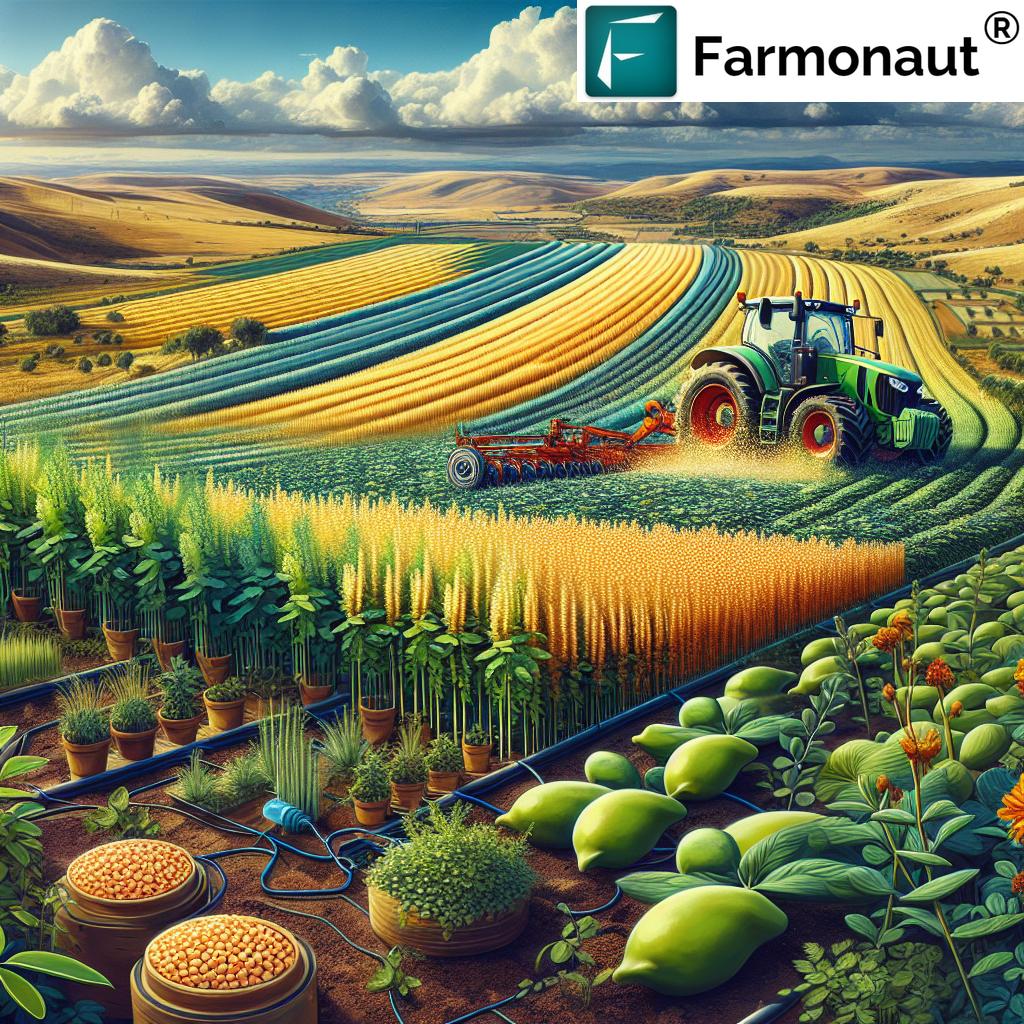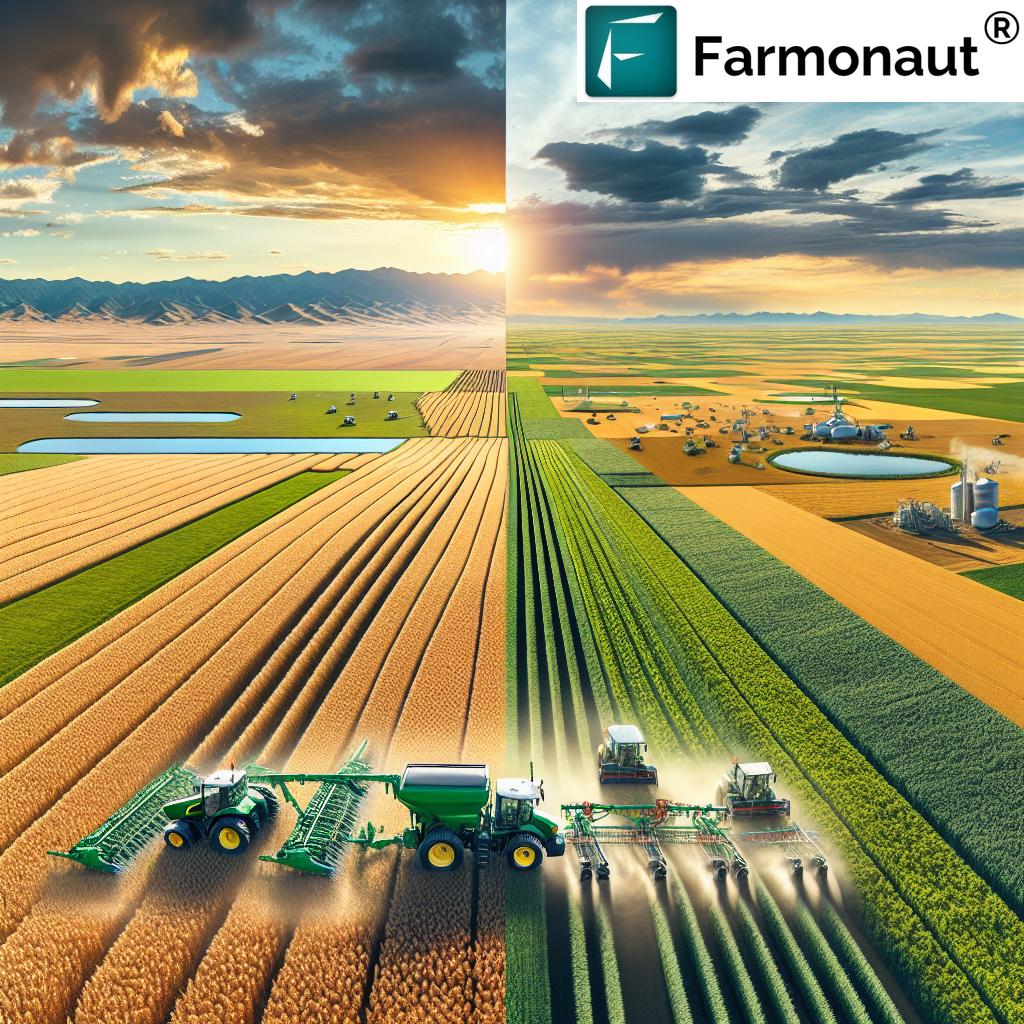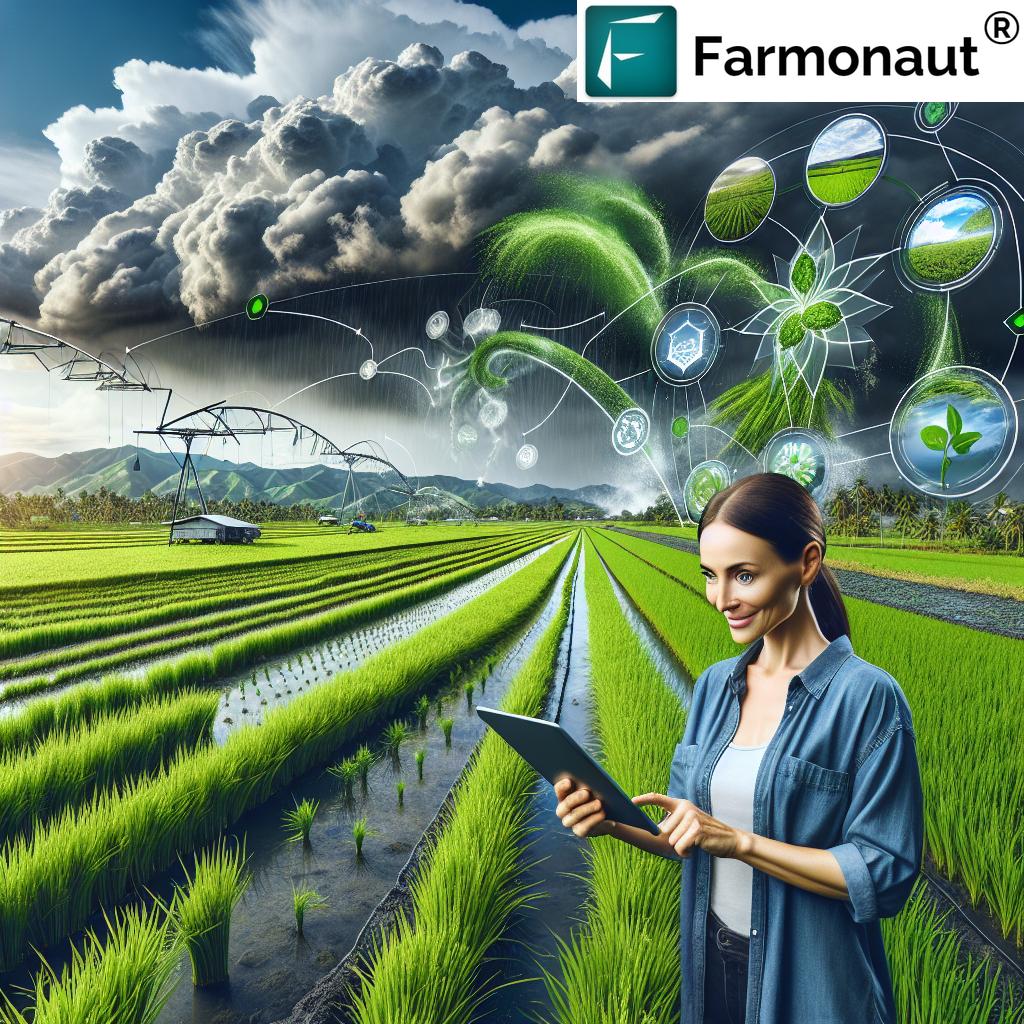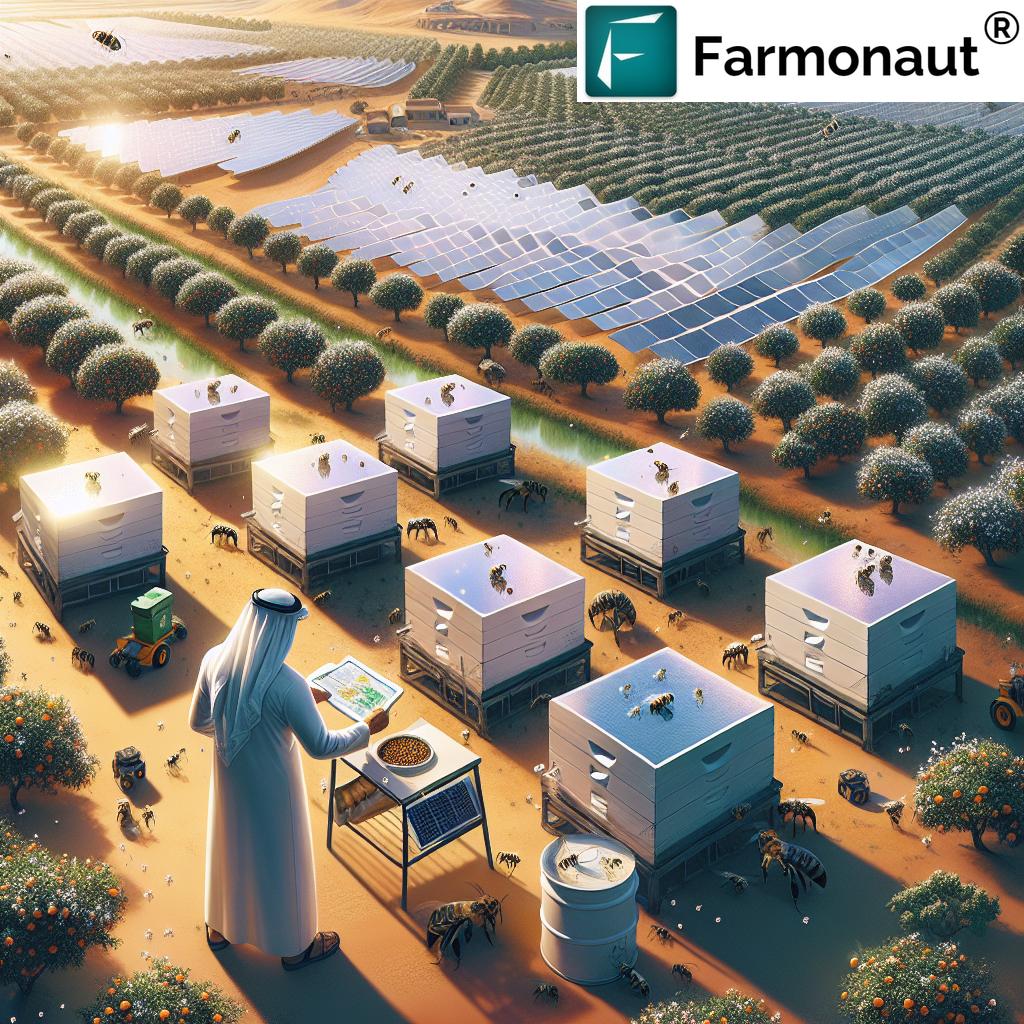Revolutionizing Middle East Agriculture: Farmonaut’s Sustainable Technologies for Enhanced Productivity and Food Security
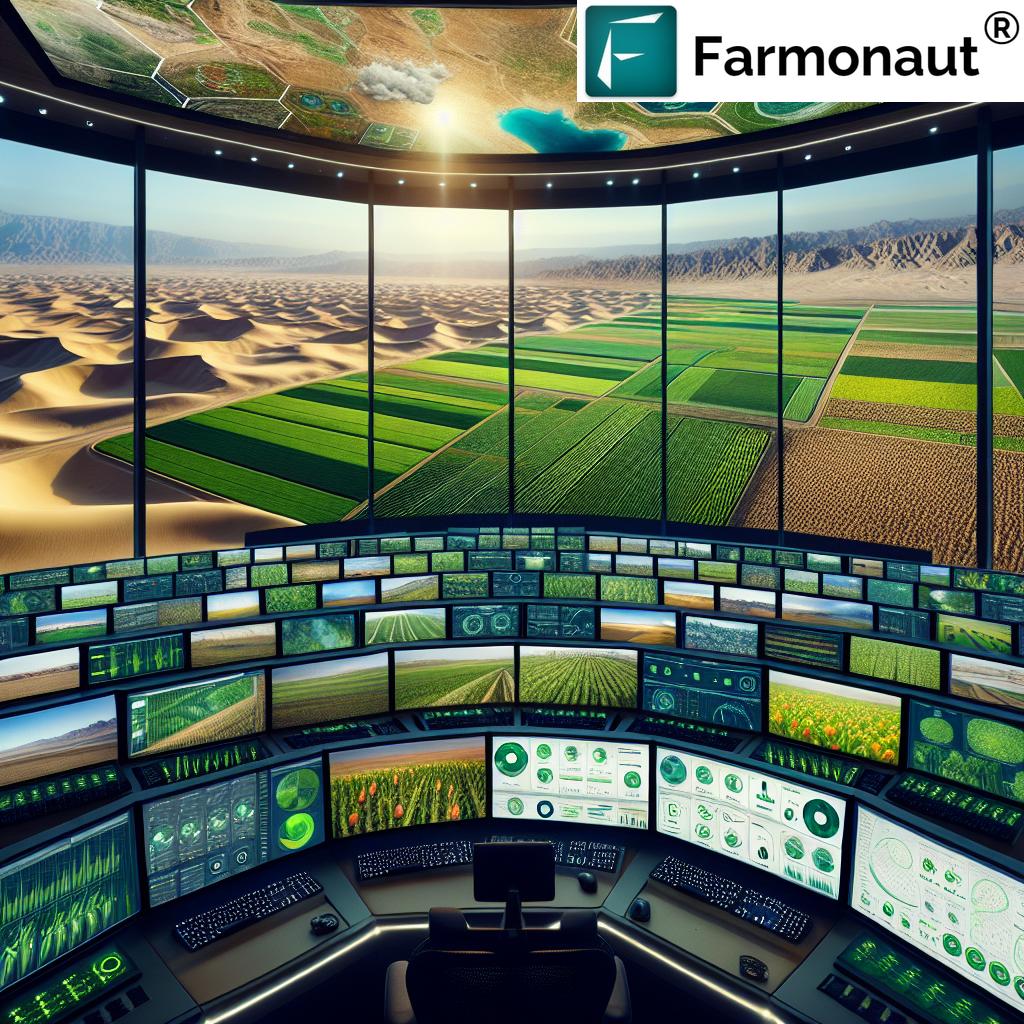
“Farmonaut’s precision agriculture technologies have increased crop yields by up to 30% in Middle Eastern farms.”
In the heart of the Middle East, a revolution is taking place. Not one of political upheaval, but a transformation in the way we approach agriculture, food security, and sustainable farming practices. At the forefront of this agricultural renaissance is Farmonaut, a pioneering company that’s harnessing the power of cutting-edge technology to address some of the most pressing challenges facing the global food supply chain.
As we delve into the world of agricultural innovation, we’ll explore how Farmonaut is reshaping the landscape of farming in the Middle East and beyond. From advanced reproductive technologies to precision agriculture tools, we’re witnessing a seismic shift in how we produce food, manage resources, and ensure food security for a growing global population.
The Middle East’s Agricultural Challenge
The Middle East faces unique challenges when it comes to agriculture. With its arid climate, water scarcity, and often degraded soils, the region has long struggled to achieve food security and sustainable agricultural practices. However, these challenges have also spurred innovation and the adoption of revolutionary technologies.
Farmonaut’s Role: This is where Farmonaut steps in. By leveraging satellite technology, artificial intelligence, and data-driven insights, we’re providing farmers and agribusinesses with the tools they need to overcome these obstacles and thrive in even the most challenging environments.
- Precision Agriculture Tools
- Remote Sensing Technologies
- Advanced Reproductive Technologies
- Sustainable Farming Techniques
Let’s explore how these technologies are making a difference.
Precision Agriculture: The Future of Farming
Precision agriculture is at the heart of Farmonaut’s approach to revolutionizing farming in the Middle East. By using satellite imagery and AI-driven analytics, we’re able to provide farmers with unprecedented insights into their crops and land.
Key Benefits of Precision Agriculture:
- Optimized resource use (water, fertilizers, pesticides)
- Increased crop yields
- Reduced environmental impact
- Better decision-making for farmers
Our satellite-based crop health monitoring system allows farmers to track vegetation health (NDVI), soil moisture levels, and other critical metrics in real-time. This data empowers farmers to make informed decisions about irrigation, fertilizer usage, and pest management, ultimately optimizing crop yields and reducing resource wastage.
Remote Sensing: Eyes in the Sky for Agriculture
Remote sensing technologies are transforming the way we monitor and manage agricultural lands. Farmonaut’s use of multispectral satellite imagery provides a bird’s-eye view of vast agricultural areas, allowing for efficient and accurate assessment of crop health, soil conditions, and potential threats.
Applications of Remote Sensing in Agriculture:
- Crop area estimation
- Yield prediction
- Drought monitoring
- Pest and disease detection
By integrating remote sensing data with our AI-powered advisory system, Jeevn AI, we’re able to deliver personalized recommendations to farmers, helping them maximize productivity while minimizing environmental impact.
Advanced Reproductive Technologies in Agriculture
While Farmonaut’s primary focus is on crop management and monitoring, it’s important to note the role of advanced reproductive technologies in shaping the future of agriculture. These technologies are revolutionizing livestock breeding and crop development, contributing to enhanced food security and agricultural productivity.
Key Advancements:
- Artificial insemination
- Embryo transfer
- Genetic modification
- Cloning techniques
These technologies allow for the development of crops and livestock that are more resilient to disease, drought, and other environmental stressors. While not directly provided by Farmonaut, these advancements complement our precision agriculture solutions, creating a more robust and productive agricultural ecosystem.
Sustainable Farming Technologies
Sustainability is at the core of Farmonaut’s mission. We believe that the future of agriculture lies in practices that not only increase productivity but also preserve and enhance the environment.
“Sustainable farming practices promoted by Farmonaut have reduced water usage in agriculture by 25% across pilot projects.”
Sustainable Technologies Offered by Farmonaut:
- Water conservation through precision irrigation
- Soil health monitoring and management
- Carbon footprint tracking
- Integrated pest management
Our carbon footprinting feature allows agribusinesses to monitor and reduce their environmental impact in real-time. This not only helps in compliance with environmental regulations but also positions businesses at the forefront of sustainable agriculture.
API Developer Docs: Farmonaut API Documentation
Global Food Supply Chain Management
The complexity of modern global food supply chains presents both challenges and opportunities. Farmonaut’s blockchain-based traceability solutions are addressing these challenges head-on, ensuring transparency, reducing fraud, and building trust among consumers and stakeholders.
Benefits of Blockchain in Agriculture:
- Enhanced food safety
- Reduced waste
- Improved supply chain efficiency
- Increased consumer trust
By providing a transparent and immutable record of a product’s journey from farm to table, we’re not only improving supply chain management but also empowering consumers to make informed choices about the food they purchase.
Agricultural Genetic Improvement Strategies
Genetic improvement is a crucial aspect of modern agriculture, allowing for the development of crops and livestock that are more productive, resilient, and nutritious. While Farmonaut doesn’t directly engage in genetic modification, our technologies support the implementation and monitoring of these strategies.
Areas of Genetic Improvement:
- Drought resistance
- Pest resistance
- Nutritional enhancement
- Yield improvement
Our precision agriculture tools provide valuable data that can inform breeding programs and help assess the performance of genetically improved crops in real-world conditions.
Emerging Market Opportunities in the Middle East
The Middle East, with its unique challenges and growing population, presents significant opportunities for agricultural innovation. Farmonaut is at the forefront of tapping into these opportunities, providing solutions tailored to the region’s specific needs.
Key Opportunities:
- Water-efficient farming techniques
- Desert agriculture
- Vertical farming in urban areas
- Saline agriculture
Our technologies are helping to transform previously unproductive lands into fertile agricultural areas, contributing to increased food security and economic development in the region.
Impact on Economic Development
The agricultural innovations brought forth by Farmonaut and similar technologies are having a profound impact on economic development, particularly in emerging markets like the Middle East.
Economic Benefits:
- Increased agricultural productivity
- Job creation in agtech sectors
- Reduced reliance on food imports
- Development of export-oriented agriculture
By empowering farmers with data-driven insights and advanced technologies, we’re helping to create a more resilient and prosperous agricultural sector that can drive economic growth and food security.
International Collaborations in Agricultural Research
The challenges facing global agriculture require collaborative efforts on an international scale. While Farmonaut operates independently, we recognize the importance of knowledge sharing and cooperation in advancing agricultural science and technology.
Areas of International Collaboration:
- Climate-resilient agriculture research
- Cross-border water management
- Genetic resource sharing
- Technology transfer programs
These collaborations are crucial for addressing global challenges such as climate change, food security, and sustainable resource management.
The Future of Agriculture: Trends and Predictions
As we look to the future, several trends are shaping the agricultural landscape. Farmonaut is at the forefront of many of these developments, driving innovation and sustainability in the industry.
Emerging Trends:
- AI and machine learning in farm management
- Internet of Things (IoT) in agriculture
- Vertical and urban farming
- Regenerative agriculture practices
We’re committed to staying ahead of these trends, continually evolving our technologies to meet the changing needs of farmers and the global food system.
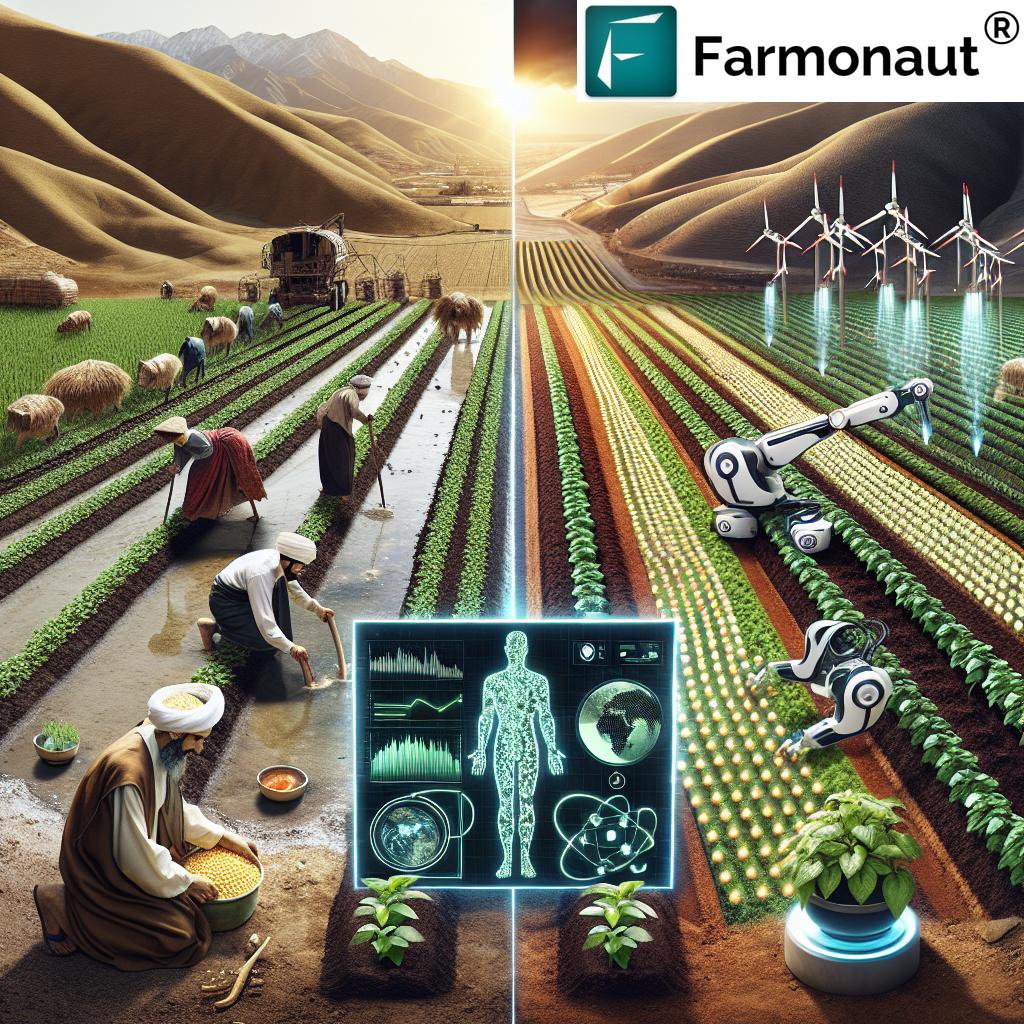
Comparative Analysis of Agricultural Technologies
| Technology Name | Primary Application Area | Estimated Yield Increase (%) | Water Conservation (%) | Soil Health Improvement (Scale 1-10) | Cost Efficiency (Scale 1-10) | Sustainability Score (Scale 1-10) |
|---|---|---|---|---|---|---|
| Precision Agriculture Tools | Crop Management | 20-30% | 30-40% | 8 | 9 | 9 |
| Remote Sensing Technologies | Monitoring and Analysis | 15-25% | 25-35% | 7 | 8 | 8 |
| Advanced Reproductive Technologies | Breeding and Genetics | 25-35% | 10-20% | 6 | 7 | 7 |
| Genetic Improvement Strategies | Crop and Livestock Development | 30-40% | 15-25% | 7 | 8 | 8 |
| Sustainable Farming Techniques | Environmental Conservation | 10-20% | 35-45% | 9 | 8 | 10 |
Conclusion: A Sustainable Future for Middle East Agriculture
As we’ve explored throughout this article, the future of agriculture in the Middle East and beyond is bright, thanks to innovative technologies and sustainable practices. Farmonaut is proud to be at the forefront of this agricultural revolution, providing farmers and agribusinesses with the tools they need to thrive in an ever-changing world.
From precision agriculture and remote sensing to blockchain-based traceability and AI-driven advisory systems, we’re committed to making farming more productive, sustainable, and resilient. As we face global challenges such as climate change, population growth, and resource scarcity, these technologies will be crucial in ensuring food security and economic prosperity for generations to come.
We invite you to join us on this journey towards a more sustainable and productive agricultural future. Whether you’re a farmer, an agribusiness professional, or simply someone interested in the future of food production, there’s a place for you in this revolution.
FAQ Section
Q: What is precision agriculture, and how does Farmonaut implement it?
A: Precision agriculture is an approach that uses technology to optimize crop yields and resource use. Farmonaut implements this through satellite-based crop monitoring, AI-driven analytics, and personalized farm management recommendations.
Q: How does Farmonaut’s technology help in water conservation?
A: Our satellite imagery and soil moisture monitoring allow for precise irrigation scheduling, reducing water waste. This has led to up to 25% water savings in pilot projects.
Q: Can Farmonaut’s solutions be used for small-scale farming?
A: Absolutely. Our technologies are scalable and can benefit farms of all sizes, from small holdings to large commercial operations.
Q: How does blockchain technology improve food supply chain management?
A: Blockchain provides a transparent, immutable record of a product’s journey from farm to consumer, enhancing traceability, reducing fraud, and building consumer trust.
Q: What role does AI play in Farmonaut’s agricultural solutions?
A: AI is central to our Jeevn AI advisory system, which analyzes data from various sources to provide personalized, real-time advice to farmers on crop management, pest control, and resource optimization.







